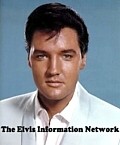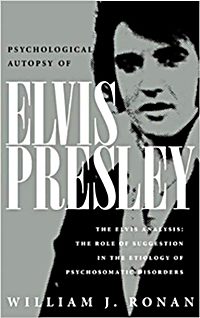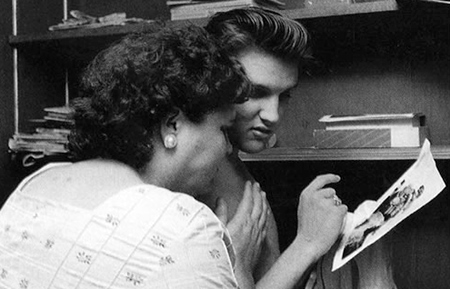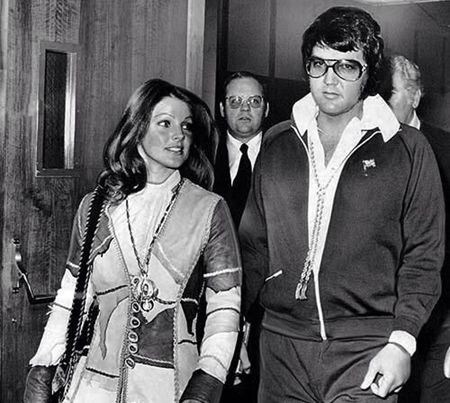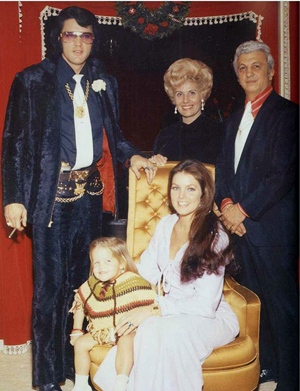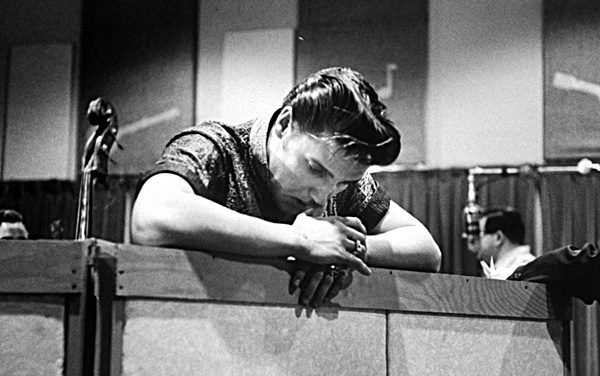 |
 |

Interview
EIN: Who is Bill Ronan?
BR:
EIN: Bill, you cover a lot of fascinating and technically complex psychological ground in Psychological Autopsy of Elvis Presley. How would you summarize what people can expect when reading the book and why should they not let the technical complexity stop them from reading it? EIN: An important point in Psychological Autopsy of Elvis Presley is that medical examiners, by principle, are essentially looking for one, physical cause of death. You contrast this with a person’s reality which is made up of interrelated physical, emotional and psychological factors. Please tell us more about this issue.
BR: My hope was/is that more professionals, like the General Practitioner, would begin to bear these kinds of issues in mind when dealing with their patients. Emotion, ideas, memories - all can have enormous impacts on us.
EIN: You present a strong analysis in your book of the psychological forces impacting Elvis including Walking Zombie Syndrome which you mentioned earlier. In researching Elvis’ psychology did you find predominating forces that contributed to his death or was it a case of the sum of all forces? BR: I would say it is the sum of all forces. I believe that when a pathologist assesses the cause of death, there can be arguments over what has played the major role. For example, the accident or the heart attack. To my knowledge there hadn’t been a psychological autopsy of Elvis. Many acknowledge the physical effects of thoughts so I felt it was time to give them some attention.
EIN: In your book one of the key psychological conditions that you discuss as having affected Elvis is the unusual sounding Ponce de Leon Syndrome. Please tell our readers about this. BR: Ponce de Leon Syndrome (PDL) can be described as a psychological age arrest brought about by trauma in their life experiences. Often when someone emotionally dies because of trauma it relates to their life history before the trauma. Hence, they can seem quite immature to many in certain situations.
EIN: You also discuss schizophrenia in some detail. Was Elvis schizophrenic?
BR: I do not think he was schizophrenic, however that is a diagnosis that would need to be made by a qualified diagnostician. What I have used is descriptive understandings that are not recognized my the mental health community. People with a wide variety of mental health diagnosis can have the Walking Zombie Syndrome or the Ponce de Leon Syndrome and no mental health diagnosis at all. EIN: Nill, what were the other major psychological forces affecting Elvis?
BR: In my opinion, the major forces affecting Elvis were (1) the death of his twin brother at birth, (2) the death of his mother at the height of his career, and (3) the feeling he had communicated with God.
EIN: Elvis’ deterioration as a person. What was it about his emotional and psychological make-up that the death of Gladys and the loss of Priscilla had such a profound effect? BR: The loss of Priscilla was very traumatic but no where nearly as much as his mother’s death. For reasons cited in my book he began to view Priscilla as a sister, the daughter his mother could not have. Over time he refused to have sex with her as if she was his mother.
EIN: Do these losses represent what you term “symptom intensifying events”?
BR: They can and do play a part in what could be Symptom Intensifying Events. These are addressed in my book and hopefully in an upcoming video.
EIN: Bill, it has long been considered by many fans and medical specialists that Elvis suffered from depression. What is your perspective on this and its role in his early death? This is still unresolved in me. My first wife and I had talked a lot about this and said to the other if one of us was to die the other should continue vigorously with life and not become like I had discovered about Elvis. EIN: Related to depression, a theme discussed by many researchers, including yourself, is about how lonely Elvis felt in life despite being surrounded by his family and the Memphis Mafia. What was happening here?
BR: The “dead” cannot share their lives because their life is not really happening for them.
BR: I think in cases such as Elvis', a well trained outsider (therapist, medical hypnoanalyst) would have been required to help him. I do not think that any person can be objective enough to work through their problems successfully. That would of course be dependent on the intensity of the emotional event.
BR: To put it simply, I would have Elvis mentally and emotionally revisit the experience of his mother’s death in a relatively controlled relaxed state. I would help him discuss his feelings and see if he would agree with my ideas. I could understand if he doesn’t agree with my idea of what happened. However, assuming he does agree, then I would point out strongly the fact that he did not need to die and that his mother would want him to live; that he should share the love they had experienced. There are generally a lot of variables but this could be the major crux of it.
BR: I found Elvis’ early rock n Roll music to be very powerful and engaging. As Mick Jagger noticed about the response of women to him on stage, Mick said, “This looks like a good job.” Elvis stood out from all the others. He was his own person, and as a singer, dramatically so. He very much wanted to be a part of his community. He had been an outsider it seems through school. He wanted to be part of a Gospel Quartet. He wanted to be part of things and communities, but was always kept out, in part because of who and what he was to his fans. It must have been so depressing to have so much and still not be able to get what you want.
EIN: One of the chapters in your book examines the issue of “the doctor as pusher”. In this context what is your view on the role of Dr. Nick in Elvis’ death?
BR: I am personally opposed to the over use of medications. So much can be done with proper treatment and with proper understanding he could have dealt with his problems. I do not want to attack Dr Nick. I think he probably did the best he could.
EIN: You have already mentioned the impact of Priscilla in Elvis' life. How do you characterise the impact of Linda Thompson and Ginger Alden?
BR: From all I can tell they were good for him, but they could not be enough. With my understanding of Medical Hypnoanalysis and the tools I have learned, I feel I could have helped where others had not.
BR: I believe Elvis “came back to life” after being “emotionally dead” after experiencing what he thought was a communication from God. Treatment through Medical Hypnoanalysis can also allow for this to happen.
EIN: Elvis’ interest in resurrection won’t be familiar to many Elvis fans. Please tell us about this.
BR: I believe Elvis “came back to live” after being “emotionally dead” after experiencing what he thought was a communication from God. EIN: Bill, thank you very much for taking the time to talk with us. BR: Thank you for the opportunity.
|
|
